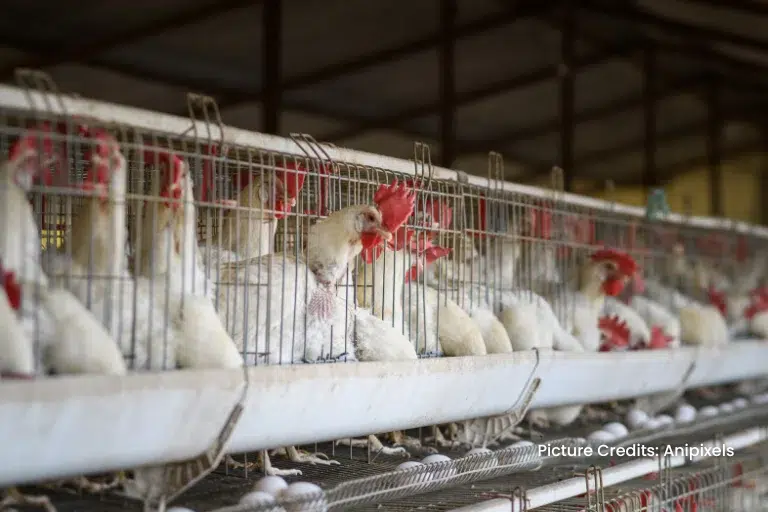
Antibiotic Resistance and Antimicrobial Resistance
By Heer Shukla
Antimicrobial Resistance is a serious issue and is used inappropriately in industrial animal agriculture. This makes it harder to treat regular bacterial infections, causing illnesses to last longer, increasing healthcare expenses, and even raising the risk of more severe outcomes. As a result, common bacterial infections become more challenging to treat, leading to prolonged illness, increased healthcare costs, and higher mortality rates.
Antibiotic Resistance poses a significant threat to global health, rendering once-effective medications powerless against bacterial infections. The rising misuse of antibiotics requires us to understand its consequences on human health, especially with the growing issue of Antibiotic and Antimicrobial Resistance
Understanding the scope of antibiotic resistance is a fascinating process that employs different methods, such as laboratory tests and surveillance programmes. The Minimum Inhibitory Concentration (MIC) test is like a detective, figuring out the smallest amount of antibiotic needed to stop bacterial growth. Scientists also use advanced molecular techniques to uncover specific resistance genes in bacterial strains, offering valuable information about how resistance is spreading. It’s like peeling back the layers to reveal the secrets of antibiotic resistance!
Effects on Human Health:

While consumers are vital in the food chain, there’s often a lack of awareness about the production of their food, especially when it involves animal products. As industrial animal agriculture practices intensify, more animals are kept in larger groups, in confined spaces leading to increased diseases. A study by Newcastle University in the UK explored consumer attitudes towards disease interventions in intensive production systems. The researchers surveyed people in the UK, Germany, Finland, Poland, and Spain about their preferences for interventions in raising chickens and pigs. Because the media doesn’t adequately cover animal production, there is a lack of awareness among the public, including consumers.
Procedures such as surgeries, chemotherapy, and organ transplants, which rely heavily on antibiotics to prevent infections, become riskier. Moreover, the emergence of multidrug-resistant bacteria poses a global threat, making it imperative to explore effective strategies to combat AMR.
The Role of Diet in Combating Antimicrobial Resistance:
In some countries, a staggering 73% of medically important antibiotics are used in animal agriculture, often simply to boost growth in healthy animals. This widespread use is a major contributor to the growing threat of antibiotic resistance (AMR). WHO recommends an overall reduction in using all classes of medically important antibiotics in animals with a complete ban on using these antibiotics for growth promotion or disease prevention without diagnosis. They suggest treating sick animals only with antibiotics and after testing to determine the most effective option. Using antibiotics in animals that are least important to human health, avoiding those considered critically important.
Shifting towards a plant-based diet presents a compelling solution to address AMR issues. Animal agriculture is a major contributor to the overuse of antibiotics, with large-scale farms routinely administering antibiotics to promote growth and prevent diseases in crowded and unsanitary conditions. These practices create an environment conducive to the development of antibiotic-resistant bacteria, which can then transfer to humans through the food chain.
Plant-Based Diet and Antibiotic Resistance Mitigation:

- Lower Risk of Zoonotic Infections: Zoonotic infections, which originate in animals and can be transmitted to humans, are closely linked to antibiotic resistance. Adopting a plant-based diet eliminates direct exposure to these infections, reducing the likelihood of antibiotic-resistant strains jumping from animals to humans.
- Reduced Antibiotic Use in Agriculture: The transition to a plant-based alternatives significantly reduces the demand for animal products, consequently decreasing the reliance on antibiotics in agriculture. By opting for plant-based diets, individuals contribute to a reduction in the overuse of antibiotics in livestock farming, mitigating the risk of AMR transmission to humans.
- Enhanced Immune System and Overall, Health: Plant-based diets are rich in antioxidants, vitamins, and minerals that support a robust immune system. A well-balanced plant-based diet can help individuals maintain good health, reducing the frequency of infections and, consequently, the need for antibiotics.
Global Impact
- According to the World Health Organization (WHO), AMR is a global health crisis that threatens the effective prevention and treatment of an ever-increasing range of infections. According to research by the RAND Corporation, if we don’t address Antimicrobial Resistance (AMR), the global population in 2050 could be between 11 million to 444 million lower than it would be without AMR.
- Most of the data analysed came from studies conducted in a single centre across 11 countries. About 30% (12 studies) focused on Antimicrobial Resistance (ABR) in hospitals and communities in Thailand. The remaining observational studies on ABR were distributed in 10 other countries, including Brazil (7 studies, 17.5%), China (6 studies, 15%), Turkey (5 studies, 12.5%), Colombia (2 studies, 5%), Malaysia (2 studies, 5%), India (2 studies, 5%), Mexico (1 study, 2.5%), Jordan (1 study, 2.5%), Palestine (1 study, 2.5%), and Senegal (1 study, 2.5%).
- Between 2000 and 2015, there was a 65% increase in global antibiotic use, as reported by Klein et al. This substantial growth is mainly attributed to the excessive use of antibiotics in developing countries, directly linked to the rise in income levels. To put it simply, the boost in Gross Domestic Product (GDP) and living standards in low and middle-income countries (LMICs) has a positive connection with antibiotic consumption. Additionally, the higher income levels in these countries have resulted in increased consumption of animal protein, potentially leading to the need for more antibiotics in the food animals consume.
- The economic impact of AMR is substantial, affecting both healthcare costs and productivity losses. A review commissioned by the UK government estimated that by 2050, the global economy could lose around $100 trillion if AMR is not adequately addressed.
Impact of AMR in India:
- India faces a significant problem with drug-resistant pathogens, including the highest rate of multidrug-resistant tuberculosis. There’s alarming resistance among various bacteria, even to newer drugs introduced since 2010.
- Regional studies show high antimicrobial resistance (AMR) in pathogens like Salmonella typhi, Shigella, Pseudomonas, and Acinetobacter. Each year, over 50,000 newborns are estimated to die from sepsis caused by pathogens resistant to common antibiotics. Although we don’t have exact population burden estimates, it’s believed that neonates and the elderly are more severely affected.
- By 2050, it’s projected that India could experience two million deaths due to AMR.
- A study published in the journal PLOS ONE estimated that deaths due to AMR in India could increase from 58,000 in 2015 to 317,000 in 2050 if no action is taken.
Call to Action:
- Global Collaboration: Emphasise the need for international cooperation to tackle AMR. Encourage governments, pharmaceutical industries, and healthcare providers to work together to develop and implement strategies to reduce antibiotic misuse.
- Public Awareness: Advocate for increased public awareness regarding the responsible use of antibiotics. This includes educating people on completing prescribed courses, not self-medicating, and understanding the consequences of antibiotic resistance.
- Regulatory Measures: Call for stronger regulatory measures to control the use of antibiotics in agriculture, as excessive use in livestock contributes significantly to the development of resistance.
- Research and Development: Support increased funding for research into new antibiotics and alternative treatments. Encourage pharmaceutical companies to invest in the development of novel drugs to combat resistant bacteria.
- Healthcare Practices: Encourage healthcare providers to adopt antimicrobial stewardship programs, ensuring judicious use of antibiotics and preventing overprescription.
- International Policy Advocacy: Advocate for the inclusion of AMR in global health agendas and policies. Encourage governments to prioritize and allocate resources for addressing antibiotic resistance.
Conclusion:
Antibiotic resistance is a pressing global health concern that demands immediate attention. While adopting responsible antibiotic use practices is crucial, transitioning to a plant-based diet emerges as a sustainable and effective strategy to mitigate the impact of AMR on human health. By making informed dietary choices, individuals can contribute to a healthier future, where antibiotics remain effective, and the threat of resistant bacteria is minimised.

